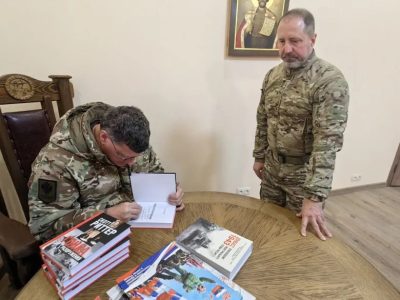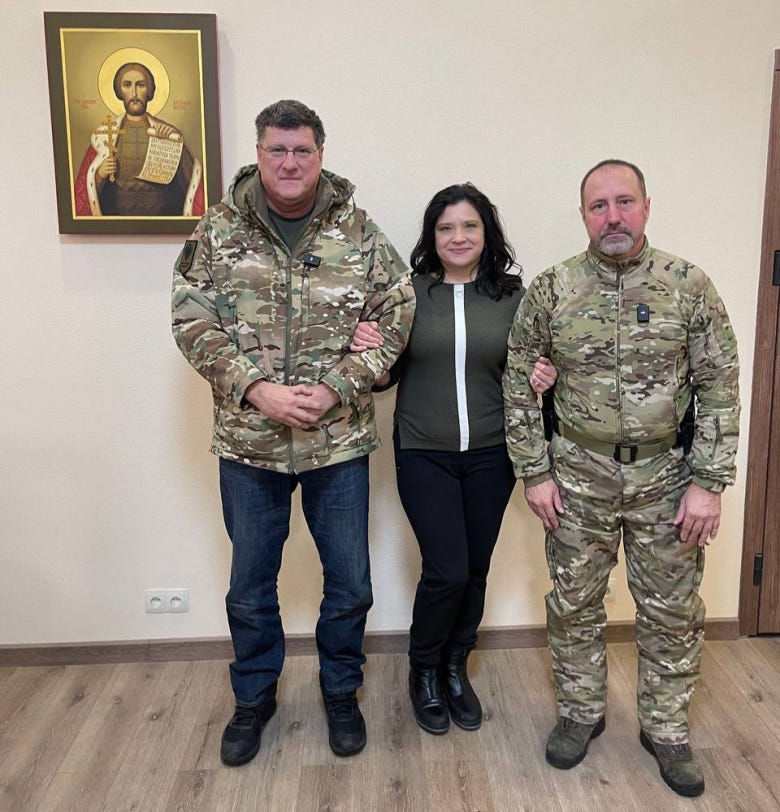A View from the Frontline. Russia’s Special Military Operation (SMO). The Colonel Khodokovsky Interview. Scott Ritter

All Global Research articles can be read in 51 languages by activating the Translate Website button below the author’s name (only available in desktop version).
To receive Global Research’s Daily Newsletter (selected articles), click here.
Click the share button above to email/forward this article to your friends and colleagues. Follow us on Instagram and Twitter and subscribe to our Telegram Channel. Feel free to repost and share widely Global Research articles.
Big Tech’s Effort to Silence Truth-tellers: Global Research Online Referral Campaign
***
Last month I journeyed from Crimea to the so-called “New Territories” of Russia—Kherson, Zaporizhia, Donetsk, and Lugansk. These four former oblasts, or districts, of Ukraine had been absorbed into the Russian Federation following referenda held on the soil of each territory where the citizens were given the choice of joining Russia or remaining in Ukraine.
The referenda were held from September 23-27, 2022. The results were unambiguous—by convincing majorities, the participants in the referenda voted to join Russia, and were so incorporated on September 30, 2022.
The absorption of these new territories into the Russian Federation altered the very essence of the Special Military Operation, or SMO, that Russian President Vladimir Putin had initiated back in February 2022.
The SMO had already gone from being a Russian-Ukrainian conflict to one that put Russia in opposition to Ukraine and its Western allies—the so-called “collective West” (the US, NATO, and the European Union.) But even with the scope and scale of the conflict having been expanded, it was still being fought on what was either Ukrainian territory (Kherson, Zaporizhia, parts of Nikolaev, and parts of Kharkov, as well as the independent republics of Donetsk and Lugansk.) After the referenda, most of the battlefield became, from the perspective of the Russian Federation, Russian territory.
The geopolitical implications of this transformation were significant—the conflict had suddenly become a question of Russia’s existential survival, a reality which, given the fact that Russia possessed a massive nuclear arsenal designed to deter threats against its existential survival, took on literal life-and-death issues that had to be factored into the strategic thinking of all parties involved.
By the beginning of 2024, the SMO had taken on a new character, one which saw the strategic balance of power shift irretrievably away from Ukraine and the collective West, and over to Russia. One of my goals in visiting the New Territories was to seek out interviews with frontline commanders and their soldiers to capture their perspectives in a manner that could be communicated back to a western audience. Alexander Zyrianov, my host, had reached out to Kirill, a Russian patriot from Moscow who had been facilitating the delivery of non-lethal aid (food, clothing, etc.) to Russian soldiers on the frontlines. Through Kirill, Alexander had lined up five visits to a variety of frontline units so that I could conduct the desired interviews.

Scott Ritter (left) and Alexander Khodokovsky (right) in Donetsk. Irina Kirkora, the Deputy Chairman of the Presidential Council for the Development of Civil Society and Human Rights, is in the middle.
However, the powers that be decided that it was too risky for me to conduct these interviews (they would have involved getting into range of Ukrainian first-person-view (FPV) suicide drones and field artillery.) In the end I was granted only one interview—with Colonel Alexander Khodokovsky, the commanding officer of the Vostok Battalion. Prior to May 2014, Colonel Khodokovsky was the commander of the elite Alpha Group special forces unit, part of the Ukrainian Security Services (the SBU).
In May 2014 Khodokovsky and many of his Alpha Group soldiers joined forces with ethnic Russians in the Donbas who objected to the illegal overthrow of Ukrainian President Viktor Yanokovich during the Maidan coup in February 2014. Khodokovsky’s Alpha Group soldiers formed the core of what became known as the Vostok Battalion, part of the militia of the Donetsk People’s Republic, and later, following the absorption of the Donetsk People’s Republic into the Russian Federation at the end of September 2022, part of the Russian Ministry of Defense.
I met Colonel Khodokovsky at an undisclosed location somewhere in the vicinity of the city of Donetsk. I had been prepared to discuss military matters, including how drones had changed the nature of modern warfare. Instead, Colonel Khodokosky and I engaged in a more philosophical discussion about US-Russian relations and the prospects for peace.
What follows is that interview:
*
Note to readers: Please click the share button above. Follow us on Instagram and Twitter and subscribe to our Telegram Channel. Feel free to repost and share widely Global Research articles.
Featured image: The author signs a copy of his book for Colonel Khodokovsky.

